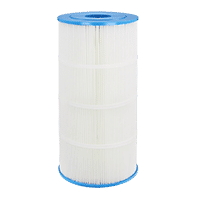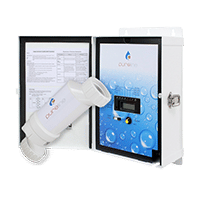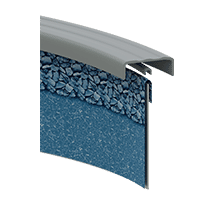After taking a swim, have you ever asked yourself, “Why does my pool water burn my eyes?” If so, this article is for you. For the most part, there is confusion surrounding what exactly causes someone’s eyes to burn after swimming in a pool. An overwhelming majority of swimmers assume that too much chlorine in the pool is what causes the burning sensation. However, this may not always be the case.
Let’s dive a little bit deeper.
Chlorine, Logic, And Itchy Eyes
To begin, let’s question the logic behind the correlation between chlorine and burning eyes. If every pool contains chlorine, one would assume that every swimmer would experience itchy and burning eyes. However, that isn’t the case. So, there has to be a deeper explanation than simply the chlorine in the pool.
So, if not chlorine, then what? According to the CDC, we can blame our burning eyes on improper pH levels, sweat, poop, and pee.
The Reasons Your Eyes Burn After Swimming
The two possible reasons your eyes burn after swimming are improper pH levels or chloramines.
Improper pH Levels
If I had to pick which of the two, pH or chloramines, is most likely the cause of your eye irritation, I’d choose pH. Without getting too scientific, let me explain why. The human tear has a pH level of 7.5. So, if your eyes come into contact with water that has a pH that’s higher or lower than 7.5, it will irritate your eyes.
We recommend that you keep your pH levels between 7.2-7.8. This range keeps your chlorine as effective as possible. Still, even within this range, swimmers with sensitive eyes can start to feel irritation. However, once the pH levels fall outside of this range, expect your eyes to burn.
TIP: Test and balance your pH levels on a weekly basis. Keep your pH levels between 7.2-7.8.

Chloramines
If you’re swimming in a pool and you can smell what you think is chlorine, think again. What you actually smell are chloramines.
In short, chloramines are the chemical compound your pool makes when chlorine interacts with dirt, germs, bacteria, etc. Ultimately, the more bacteria the chlorine interacts with, the more chloramines are released into the pool. This also means that less chlorine is available to keep your pool sanitized.
High levels of chloramines in your swimming pool cause eye irritation, dry skin, and skin rashes.
Reducing The Amount of Chloramines
To reduce the amount of chloramines in your pool, simply add chlorine. You will need to add enough chlorine to reach breakpoint chlorination, or enough chlorine to eliminate your combined chlorine levels so that the free chlorine can do its job.
Keep in mind, chlorine is most effective when your pH levels are within the 7.2-7.8 range.
To learn more about the relationship between pH and chlorine, we recommend watching our video below.
Why Does My Pool Water Burn My Eyes?
The answer to the question, “Why do my eyes burn after swimming?” can be one of two reasons: improper pH levels in your pool or high levels of chloramines in your pool.
One of the best ways to prevent eye irritation is to balance and maintain all chemical levels in your pool consistently. Paying close attention to your pH and chlorine levels helps ensure your water is consistently sanitized and safe for all your swimmers.












Leave a Reply